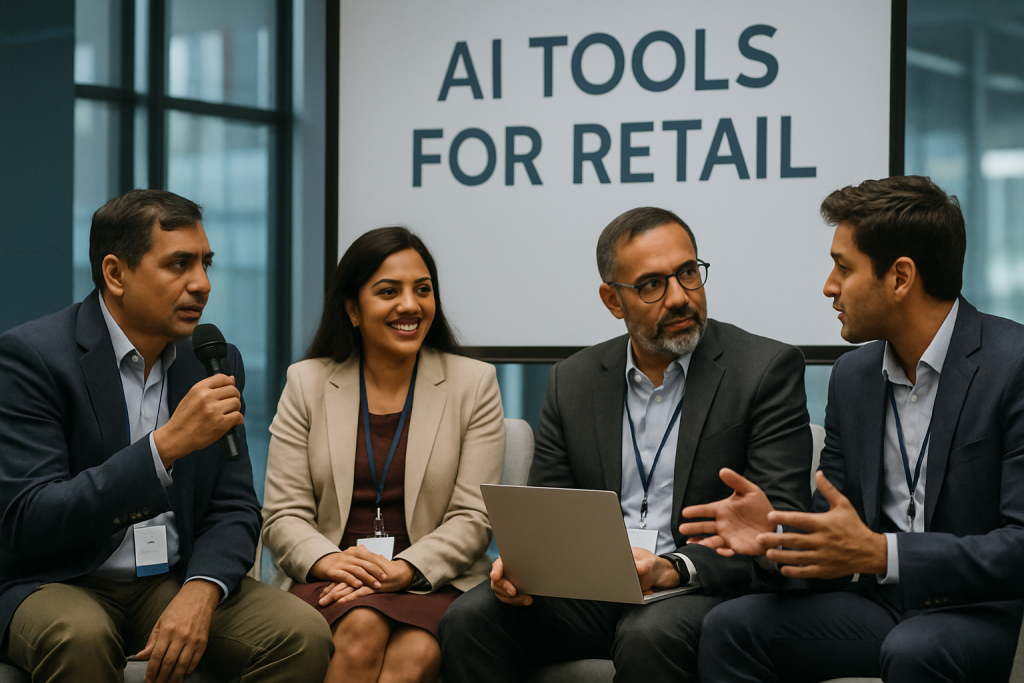Indian retailers are embracing artificial intelligence to create personalized shopping experiences. This shift helps businesses increase customer loyalty and drive sales growth.
The transformation comes as competition intensifies across India’s retail landscape. Traditional marketing approaches no longer capture customer attention effectively. Modern consumers expect tailored recommendations and seamless shopping journeys.
According to Deloitte research, brands excelling at personalization exceed revenue goals by 48%. These companies also improve customer loyalty by 71% compared to competitors.
However, a significant gap exists between brand intentions and customer perceptions. While brands believe 61% of interactions are personalized, only 43% of consumers recognize them as such, according to the June 2024 Deloitte report.
The ET Soonicorns Summit 2025 will explore this challenge on August 22 in Bengaluru. A key session titled ‘AI-Driven Personalisation and Omnichannel Commerce: The Next Retail Battleground’ will feature industry leaders discussing practical implementation strategies.
Venu Nair from Myntra, Ankit Gupta of Reliance Retail, and Rahul Kothari from Razorpay will share insights on leveraging AI for customer engagement.
Why It Matters Now
The Indian AI retail market is projected to grow from USD 216.26 million in 2023 to USD 2.97 billion by 2032, according to industry projections. This explosive growth reflects increasing demand for personalized shopping experiences.
A Zebra Technologies study found that 77% of Indian shoppers prefer retailers offering AI-powered recommendations. This preference drives immediate business impact across online and offline channels.
Omnichannel retail strategies are growing 50% faster than single-channel approaches in India. Customers now use multiple touchpoints before making purchases, requiring seamless integration across platforms.
Market Impact in India
The Indian retail market is expected to reach USD 1.4 trillion by 2024, according to NASSCOM projections. Companies that successfully implement AI-driven personalization will capture disproportionate market share.
Myntra demonstrates this potential with its MyFashionGPT and My Stylist AI tools. The company’s generative AI assistant, built on Microsoft Azure OpenAI Service, allows natural language shopping queries. Users asking ‘what to wear for a festival’ are three times more likely to make purchases.
Reliance Retail operates over 18,650 stores using AI across its entire value chain. The company employs machine learning for demand forecasting, supply chain optimization, and automated replenishment systems.
Vision systems now spot defects in real-time manufacturing processes. This reduces waste while improving product quality across production lines.
Strategic Advantage
Businesses implementing AI personalization gain multiple competitive advantages. Real-time data analysis enables dynamic pricing and inventory optimization strategies.
Customers expect unified experiences across digital and physical touchpoints. Companies delivering seamless omnichannel journeys outperform competitors focused on single channels.
Zerodha and Groww use robo-advisors for automated investment recommendations. These platforms expand financial inclusion while reducing operational costs.
What Business Leaders Should Know
Successful AI implementation requires understanding customer behavior patterns through data analysis. Companies must invest in technology infrastructure supporting real-time personalization.
Integration across channels remains critical for customer satisfaction. Businesses should prioritize seamless transitions between online platforms and physical stores.
Razorpay’s acquisition of POS firm Ezetap demonstrates the importance of unified payment experiences. Customers need consistent service quality regardless of transaction method.
The personalization gap presents immediate opportunity for forward-thinking retailers. Companies addressing this disconnect will build stronger customer relationships and drive sustained growth.
Traditional retailers must adapt quickly to remain competitive. Those embracing AI-driven strategies position themselves for success in India’s rapidly evolving retail landscape.


